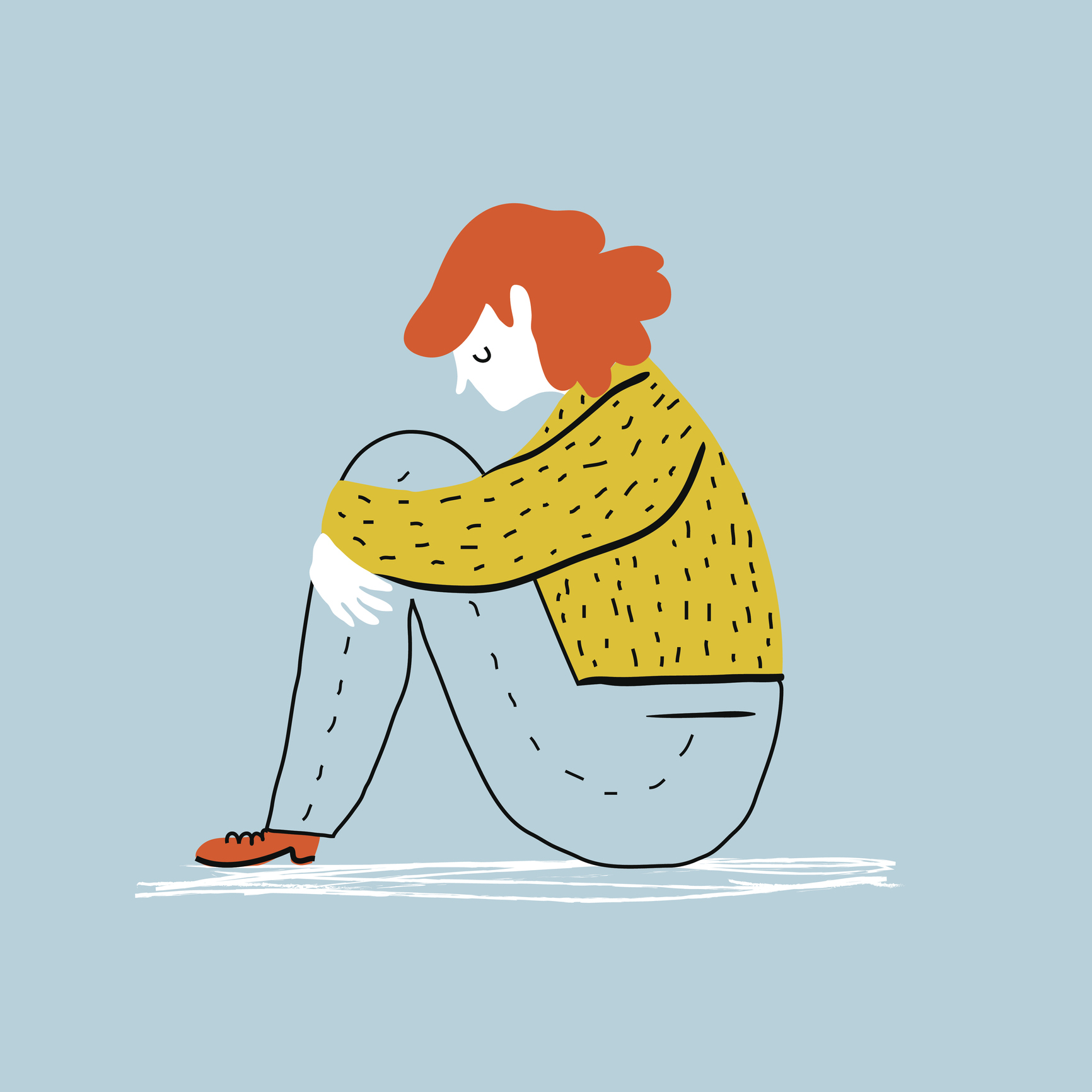Written by Devinder Bains
Why do tears come so easily the week before your period? Stylist speaks to an expert to find out
“The tears usually begin two or three days before my period starts and continue into the first day of my period. Anything can set me off, from a stressful day at work, an innocent comment from my husband or something heartwarming or even romantic on the TV,” says Gemma, 34, a biology teacher from Billericay.
“I am so sensitive and take everything to heart; things that wouldn’t usually bother me can set off a flood of tears. I also get a mix of extreme insomnia and horrible nightmares for four days before my period, which makes me even more sensitive. I feel sad, teary and just generally flat, like nothing is quite right in my life.”
Gemma is not alone in experiencing emotional upset in the form of tears as part of her PMS (premenstrual syndrome) symptoms, and although the exact numbers of women who find themselves in tears and the reasons why they do needs more research, the NHS states that most women will have PMS at some point, with mood swings and feeling upset at the top of their list of symptoms.
“Feeling tearful is common and normal. Almost 75% of women feel these cyclical emotional changes,” says Dr Rebecca Moore, a consultant psychiatrist whose patients include women suffering with premenstrual dysphoric disorder (PMDD) and those going through the menopause. “It’s not fully understood why women get premenstrual changes but it’s likely because of changes in their hormone levels during the menstrual cycle,” she explains.
“Around ovulation, the body releases an egg, causing oestrogen and progesterone levels to drop. This shift can cause both physical and emotional symptoms and influence serotonin levels – a neurotransmitter that helps regulate mood, sleep and appetite. Low levels of serotonin are linked to feeling tearful and sad as well as feelings of irritability, sleep issues and food cravings – which are all common PMS symptoms.”
And pre-period hormonal changes could also affect connectivity between two brain networks: the default mode network and the salience network. “These networks play key roles in creating our emotional life, and studies have shown that they can be impacted by the changes in oestrogen and progesterone levels,” explains Dr Moore. “Other studies indicate that female test subjects who receive ovarian hormones designed to mimic the menstrual cycle report an increase in negative mood and show an enhanced stress response.”

Beth, 33, from Sheffield is all too familiar with the emotional rollercoaster that can come before a period. “The tears can kick in about eight days before my period is due,” she says.
“I’m always more likely to feel teary in the morning – like the day ahead is going to be too much for me. It’s not every day, it can come and go, and lasts a couple of days into a new cycle.”
The illustrator explains what triggers the tears. “I find it’s usually ‘real life’ stuff: work, chores, family, to-do lists. I have two young children and often get a bad night’s sleep, but in the few days before my period is due, I find it harder to cope with the lack of sleep – that’s probably my biggest trigger for tears. I feel stressed and desperate, and I always feel sorry for myself.”
The mini pill worked for Gemma for a while. “I was on it for years, and the main reason was to help stabilise my tearfulness,” she says. “I had to come off due to other side effects or I would still be on it.” Gemma has recently turned to supplements instead. “I have been taking a high dose of magnesium and it has made so much difference, I didn’t cry last month – the first time in ages. It also helps with cramps and with the insomnia too.”
So what else can be done to keep the tears at bay? “Build a toolkit to lift your mood. This can include seeing friends, sleep, watching a comforting film – things that make you feel good,” explains Dr Moore, who is also co-founder of the Birth Better collective, which helps mothers-to-be with information and resources. “Track your cycles and learn to understand your patterns and how they affect you, read Period Power by Maisie Hill and think about therapy to help you learn new ways of thinking, and to manage your thoughts and cognition.”

Tracking her period is something that Beth has started to do. “Some of the people I followed on Instagram were talking about period journaling/tracking apps, so I downloaded the Clue app to track mood, energy, sleep and pain throughout my cycle,” she explained. “It obviously doesn’t take the symptoms away, but knowing there’s a pattern and a hormonal reason helps. I know it’ll be over in a few days, and it encourages me that I can, and will, manage it, because I do so every month.”
And studies have shown that diet and exercise can also play a part. “Limit salt, caffeine and alcohol; drink plenty of water; eat green leafy veg, complex carbs such as sweet potatoes, lentils or unprocessed oats and nuts; and iron rich foods such as lean meat,” says Dr Moore. “And exercise increases endorphins, which are natural mood lifters and can help sleep regulate too. Training also helps distract us from some of those PMS feelings.”
Images: Getty
Source: Read Full Article
